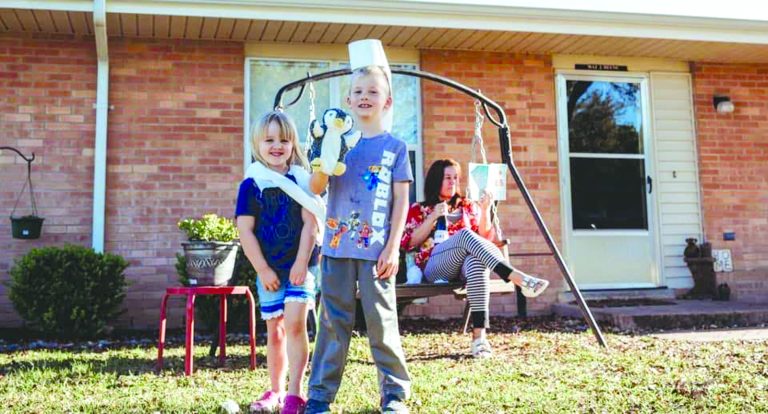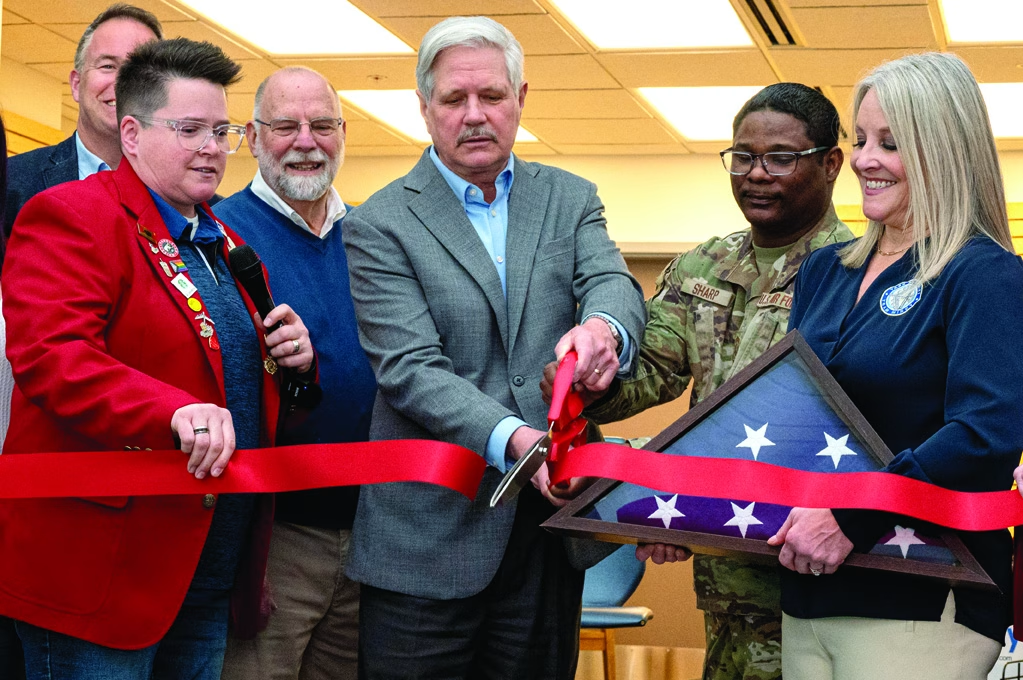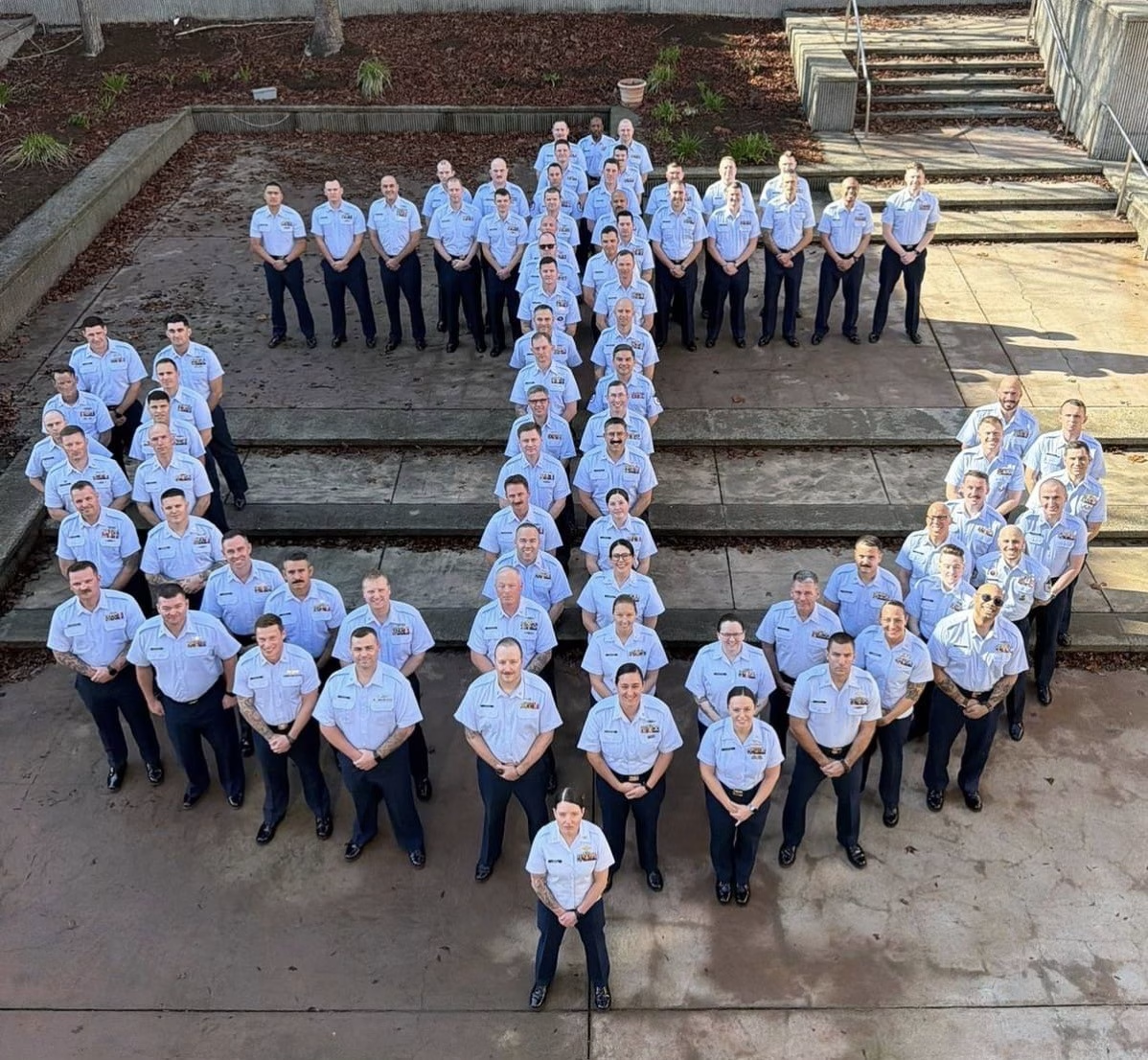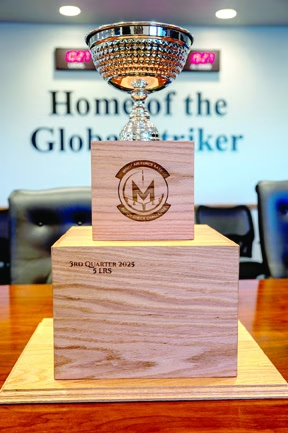*This article was written in August of 2020, but was not authorized for publication at that time. This writer hopes the integrity of this story, written in the midst of the struggle, without the benefit of retrospect to add bias, will bring awareness to the mental struggle that was mostly silenced from military families during the first few months of the Covid Pandemic in these circumstances.
The last few months need no explanation; we have all experienced the world shattering pandemic of COVID-19. Everyone, everywhere has a unique story to tell regarding this global issue. This article wishes to explain the specific experiences of the families that have been stationed at Laughlin AFB, a small, remote base near Del Rio, Texas, just miles away from the Mexican border. The base’s mission is primarily to train pilots. It also functions as a fully operational Air Force installation, with all the support and security functions needed to maintain the facility. According to MyBaseGuide.com, Laughlin AFB hosts approximately 1,268 family members at any given time. This story is about them during this global health crisis.
Del Rio, Texas, is a small town, with a population of about 40k. It does not offer much in terms of amenities, but has what most small towns have: a single movie theater, a miniature mall, local shops, parks, public pools and even a near-by lake. There are some things to stay busy with, but most newcomers would say you have to be willing to look for them. In mid-March, when COVID-19 kicked off and the official lock down began, the situation here was likely similar to others around the world. Businesses were forced to close, all sporting activities were canceled, and life virtually shut down.
What separated these family members stationed at Laughlin from other families around the globe, even those stationed at other military installations, was the specific isolation. As most people are aware, military families move around constantly. Rarely are they within driving distance to family or friends. That in itself is a difficult lifestyle. Usually, military bases offer many programs, events and unit functions to help combat the loneliness that comes with the military lifestyle. But those social programs also came to a halt during the COVID-19 closures.
What happens when you take a military family, put them in a remote location -where most have no friends or family- tell them they have no say in what happens and that no one can come visit them? Oh, and also tell them not to leave their house for months on end? I will let the families explain it to you.
One Laughlin mom, whose husband had just deployed in February 2020, explained to me how alone she truly felt, and the emotional struggles she encountered during the height of the shutdown. At one time, the handful of grocery stores here in Del Rio were not allowing children in the stores at all. With a spouse deployed and no family to watch her kids, this was a difficult and scary blow. She told me, “I felt at a great loss and like my hands were tied since my children were out of school, we weren’t supposed to be in contact with anyone outside of our household, and grocery pickup slots in this small town were almost nonexistent. I felt myself rapidly losing the ability to safely care for myself and my children both emotionally and physically. It was very scary and very isolating.” She was unsure how she would hold it together for her family.
Another spouse, who was on active duty and recently separated to stay home with her two young kids, explained to me her COVID shutdown experience . Since she recently decided to be a stay at home parent, she was not yet accustomed to the stay at home mom lifestyle, let alone being literally trapped in the house all day. Staying at home with kids is no walk in the park and is extremely isolating. But for this spouse, learning to do this during a pandemic was beyond difficult and mentally draining. She told me, “I have a lot of anxiety about whether I’m doing the best I can raising my kids and just sitting at home all day. The days seem to run into each other. I catch myself feeling more irritable and turning on the TV all day long for the kids and I wish I had the energy to do more for them.”
Another spouse I spoke to over the course of the pandemic shared with me about how having her husband home all the time -as he was forced to work from home- caused extreme hardship in their marriage, to the point of divorce conversations. They were stuck living in a situation where no one had much to do, kids were bouncing off the walls, emotions were running high and they were almost at the end of their ropes on how to get through this. More recently she explained to me how this extreme marital situation virtually vanished once her spouse was allowed to return to work and her and the kids were allowed to do some things once again. But the mental strain of the continuing pandemic still lingers.
Parents are not the only ones who struggled with this isolation. One childless spouse revealed to me that “Laughlin is a small base already, but COVID made it smaller with the gym closing (group fitness), food services closing, travel restrictions, spouse socials canceled. I guess mostly I’m saying it’s already a hard place to live in, but COVID made it one million times worse.” She addressed her concerns in the lack of medical care -that is already a concern here- and how it was nearly impossible to get even basic medical specialty care since trips to San Antonio (approximately 150 miles away) were prohibited. She also said, “COVID has wreaked havoc on me personally here in Del Rio. On my mental health, work life, social life, etc. I think why it’s been so hard here specifically is because we are already isolated, detached, and living in a town with limited resources. Then add COVID, and it’s just a misery fest.”
On the opposite side, one spouse did share with me how the shutdown actually benefited her. It gave her the push she needed to finally reach out and get some personal therapy. She finally had time to really work on herself. According to her, it actually strengthened her marriage because it allowed her and her husband to work on communication skills. She found the resources to get the counseling she needed through a Facebook post she saw about maintaining mental health and what services were available on this base. She did also admit that since her child was not in school yet and she had not yet made friends, the shutdown didn’t affect her all that much in terms of daily life.
There are many more similar situations, but most spouses I have been in contact with have a version of the same stories. Being isolated in a remote area caused other issues to arise. All the spouses I talked to experienced extreme loneliness of some kind and most also admitted to feeling abandoned by the base in terms of support. All the spouses admitted that they have less hope about the future now and said they thought the base could be doing something more to look after the mental health and stability of the families struggling here.
Although basic physiological needs and safety are numbers one and two on Maslow’s Hierarchy of Needs, genuine sense of love and belonging is number three. People cannot thrive and succeed in life without all these basic needs fulfilled. With continued restrictions, wielding of emergency authorities, shaming of perceived “selfish” people who seek those needs, new levels of societal norms, and so on, what has it been doing to society as a whole? Besides trying to protect from illness, are these restrictions leading to even larger problems? This question has become even more relevant when speaking to spouses who revealed things to me that they would never openly reveal to their spouses’ leadership.
When we uncover the stories and truths behind what happened to the spouses at Laughlin AFB during the COVID-19 shutdown, we are led to the realization that there is more at stake than worrying about physical health. If connection and belonging are also basic needs, are we actually doing the best we can make sure those personal needs are met too? Or are we willing to continue to sacrifice one need for another, and what kind of society does that make us in the longer term?













